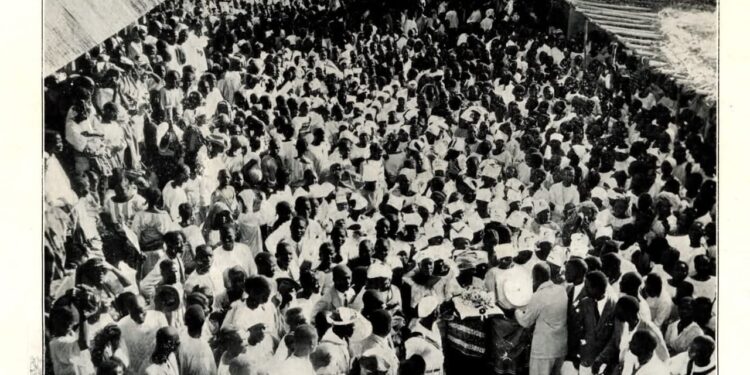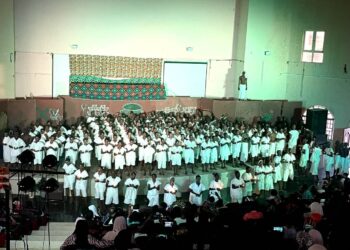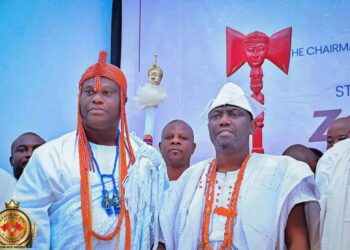By: Rev. J. Buckley Wood.
Contributions: Mógàjí Gbóyèga Adéjùmò

Historical Notices of Lagos, West Africa (1933)
Ashipa
The secureness of their newly acquired possessions in Lagos, set free Isheru, who with a band of his people, left, in order to carry on warlike operations in its neighborhood.
The last place that he reached and where he died, was Isheri.
The people of Isheri wished to stand well with the Benins, and knowing that the latter attached much importance to their great men being buried in their own country, they committed the body of Isheru to the charge of one Ashipa, a principal man amongst them, a descendant of the Ogunfunminire, who was the Ruler of Isheri when it first comes under notice.
With the full approval of the rulers of Isheru, Ashipa himself went to Benin taking the remains of Isheru with him.
The King [of Benin] was much pleased with Ashipa on account of the friendly manner in which he had acted, and knowing that he was of the royal family of the Yoruba, he gave him such presents and showed him such courtesy as were due to his rank.
Before the return of Ashipa from Benin, the King conferred on him the title Oloriogun of Lagos, contracted into Ologu – Head War Chief, with the insignia of the office, namely a sword, and the royal drum Igbedu.
He also appointed several people to accompany him, who were to help him in carrying on the government of Lagos.
So the person chosen to be Head Chief or King of Lagos, was not, as might have been expected, of the kingly family of Benin, nor yet a chief of that tribe; this Ashipa was of the Yoruba royal family, as all those who succeeded him were, being his descendants, as the following list will show.
The second King of Lagos was Addo, the son of Ashipa; Addo was succeeded by his son Gabaro, who was the third; and he by his brother Akishimoye, the fourth; the fifth was Eletu-Kekere, and a son of Gabaro.
Addo had a daughter named Erelu, who had a son named Kuteri, who was the sixth occupant of the throne, and was the father of the seventh, Adele.
Adele was deposed and his place occupied by his brother, Oshikolu, who was the eighth in succession; Oshiloku was followed by his son Edewu who was the ninth. When he vacated the throne the deposed Adele was restored to it.
Adele was succeeded by his son Oluwole, the tenth King.
The eleventh was Akitoye, who was a son of the before mentioned Kuteri. Akitoye was expelled from Lagos by his nephew Kosoko, who was a son of Oshiloku, and the twelfth in succession.
In his turn, Kosoko was driven by the English, in 1851, and the expelled Akitoye was restored to the throne. On the death of Akitoye he was succeeded by Dosunmu his eldest son, who was the thirteenth King of Lagos.
It is very probable that the persons sent by the King of Benin with Ashipa, ostensibly to assist him in carrying on the government of Lagos, were in reality sent to watch their master’s interests in the place.
The earlier Kings of Lagos acknowledged the Kings of Benin as their suzerains and were tributary to them.
But as time went on and as Lagos increased in riches and grew in importance, its rulers began to care less for their lord paramount, and became lax in paying the customary tribute; till, in the reign of Edewu, the messengers who came from Benin to receive it, were sent back without it; this was about the year 1830.
The Benins do not appear to have even attempted to enforce payment;nor is it likely that had they done so they would have been successful; for Lagos must have been at this period a more important place than Benin, since it had enjoyed all the benefits which were derivable from ten years of the slave trade; being the port whence many thousands of Yorubas, Egba, and others were shipped abroad and in addition to this, there were a number of Europeans residing in Lagos, who were engaged in the slave trade and who, in case of an attack from Benin, would have rendered valuable assistance in repelling it.
In the reign of Oluwole, the messengers again arrived from Benin to ask for the payment of the customary tribute; but again it was refused.
From about that time there was an exchange of presents at certain periods, between the two places; from which we may infer, that it was understood that their former relations were changed, and that their intercourse in future was to be as between equals, and not as before, as between suzerain and feudatory.
This being granted, Lagos sent, as it was well able to do, larger presents that it received in return, and in this way it continued to to acknowledge its filial relationship to Benin.
I always ask this rhetorical question that if Lagos is “no man’s land”, then same can be applied to Porto Novo (Àjàṣẹ), Port-Harcourt, Freetown, Libreville, Monrovia and Cape Town because they were given oyinbo names, (although they all have indigenous names). It is high time we reverted back to the original name of the place, which is Èkó, so that fraudulent “developers” of other people’s land will desist from making claim to it. According to Àyìnlá Omowura, “kẹ ẹ tó sọ irọ di òótó, ó máa pé o”.
I think many of these fraudulent elements are being deceived because of the name Lagos, which the colonialists gave to it. Every inch of the area referred to as Yorubaland is rooted in Ifá. The name Èkó (the local name of the place referred to as Lagos) is rooted in the sacred Odù Ifá Ìká Méjì.
Ẹyin ò gbọ bí Odù Ifá Ìká Méjì ṣe ń fenu rere fò sílè?
Àwọn ẹyẹ níí fojú ọrun ṣe òréré;
Àwọn Òyìnbó níí fojú òkun ṣe ọna rìn;
Ajá níí fi “wáá gbà”, “wáá gbà” ṣe olórúko;
Àwọn ló dí’á fún Elébŭté, ọmọ ab’ọkọ méjì yẹbẹ-yẹbẹ lójú omi;
Lọjọ tí wọ́n ń lọ mú’lè ní Èkó;
Ẹbọ lawó ní kí wọ́n ó ṣe;
Njẹ ọkọ ńyí o, ọkọ ń dà;
Èbúté ire lọkọ mí rè;
Èbúté ire làwá wà.
The short story behind this verse is that people living around Ebute (bank of the Lagoon and the Atlantic ocean) went to do divination on how they would be prosperous, and the Babalawo cast this Odù Iká Méjì for them, which require amongst other things that they should use “igba ìkó oódé” (200 parrot feathers) as sacrifice. Their sacrifice was accepted and they became prosperous. That was how they adopted the name “Ìkó”, which was later corrupted into “Èkó”.
Another verse of Ìká Méjì says:
Ọpẹlọpé èjìká ni kò jẹ kí èwù ó bọ;
Mo dúpé lọwọ baba rere to bí mi lọmọ;
A dí’á fún wọn ni’lŭ Èkó;
Wọ́n gbéjì, wọ́n gbáré ajé jọ;
Wọ́n ní kí wọ́n rúbọ kí wọ́n le baà di onílé ńlá;
Ọna ọpẹ, ònà ò jìn,
Ẹ wá ba ni ní jẹbútú ire;
Jẹbútú ire làá bá ni lẹsẹ Ọbàrìṣà.
Èlà bọ rú;
Èlà bọ yè;
Èlà bọ ṣiṣẹ o.
*Mọ́gàjí Gboyega Adejumo. The Gbọ̀ńkàá Ààrẹ Ọ̀nà Kakaǹfò Ilẹ̀ Yorùbá*
* Oba Eshugbayi Eleko was the Oba of Lagos from 1901 to 1925, and from 1931 to 1932. He was the son of the late Oba Dosunmu. [wiki]
You can get every of our news as soon as they drop on WhatsApp ...To get all news updates, Join our WhatsApp Group (Click Here)







